The goat farming business is an important part of the Swiss agricultural economy. Goats are a valuable source of milk and cheese, and their meat is also popular. Goat farming is also an important employment source in rural areas. In Switzerland, goat farming is a major industry, with almost 200,000 goats kept for their milk. Goat milk makes cheese, yogurt, and other dairy products.
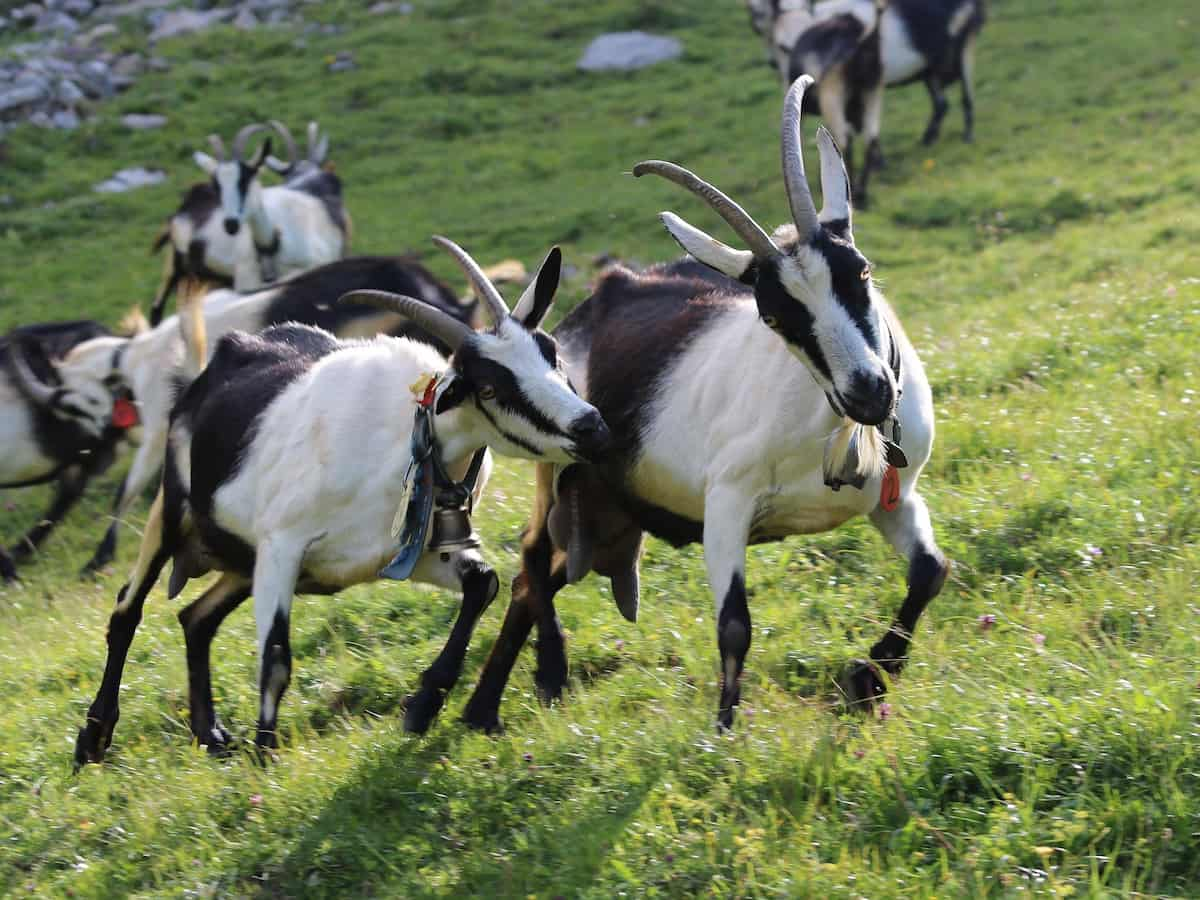
How to start goat farming in Switzerland
Is goat farming profitable in Switzerland?
Yes, goat farming can be profitable in Switzerland. There are different factors to consider when finding if a farm is profitable, including the size, the number of goats, the cost of feed and care, and the price of milk. A smaller farm with fewer goats may not be as profitable as a larger farm with more goats. The cost of feed and care will also affect profitability. Goat farmers must also consider the milk price, which will impact how much they can sell their products.
Goat farming for beginners in Switzerland
It is a popular agricultural activity in Switzerland. With a little research and planning, it can be a fun and rewarding experience. Here are some tips for those interested in starting a goat farm in Switzerland:
Choose the right location
Goat farming requires a lot of space for the animals to roam and graze. Remember, you have enough land available before getting started.
Start with a small herd
It’s best to start slow when first getting into goat farming. Begin with a small herd of goats and expand as you become more comfortable with the process.
Learn about goat care and management
Ensure you understand the basics before diving into goat farming. This includes feeding, housing, health care, breeding, and more.
Find a good source of goats
When setting up your farm, it’s important to find a reliable source of goats. Once you have your goats, give them plenty of time to adjust to their new home before starting any dairy or meat production operation.
Goat farming areas in Switzerland
- Switzerland’s main goat farming areas are in the cantons of Valais, Vaud, Bern, and Ticino. There are also smaller farms in other parts of the country.
- The climate and terrain in Switzerland are well-suited for goats. Goats are adaptable animals and can live in various climates and terrain. The Swiss Alps provide ample grazing for goats.
- There are several hundred goat farms in Switzerland. Most of these farms are small, family-run operations. Some of the larger farms have several hundred goats.
- Goat milk is a popular product in Switzerland. Goat cheese is also made on some farms. Both products are sold locally and exported to other countries. Most goat farms in Switzerland are located in the canton of Bern. Other major goat-farming regions include the cantons of Valais and Zurich.
In case you missed it: How to Start Goat Farming in Brazil: Rearing Business Plan, Breeds, and Management
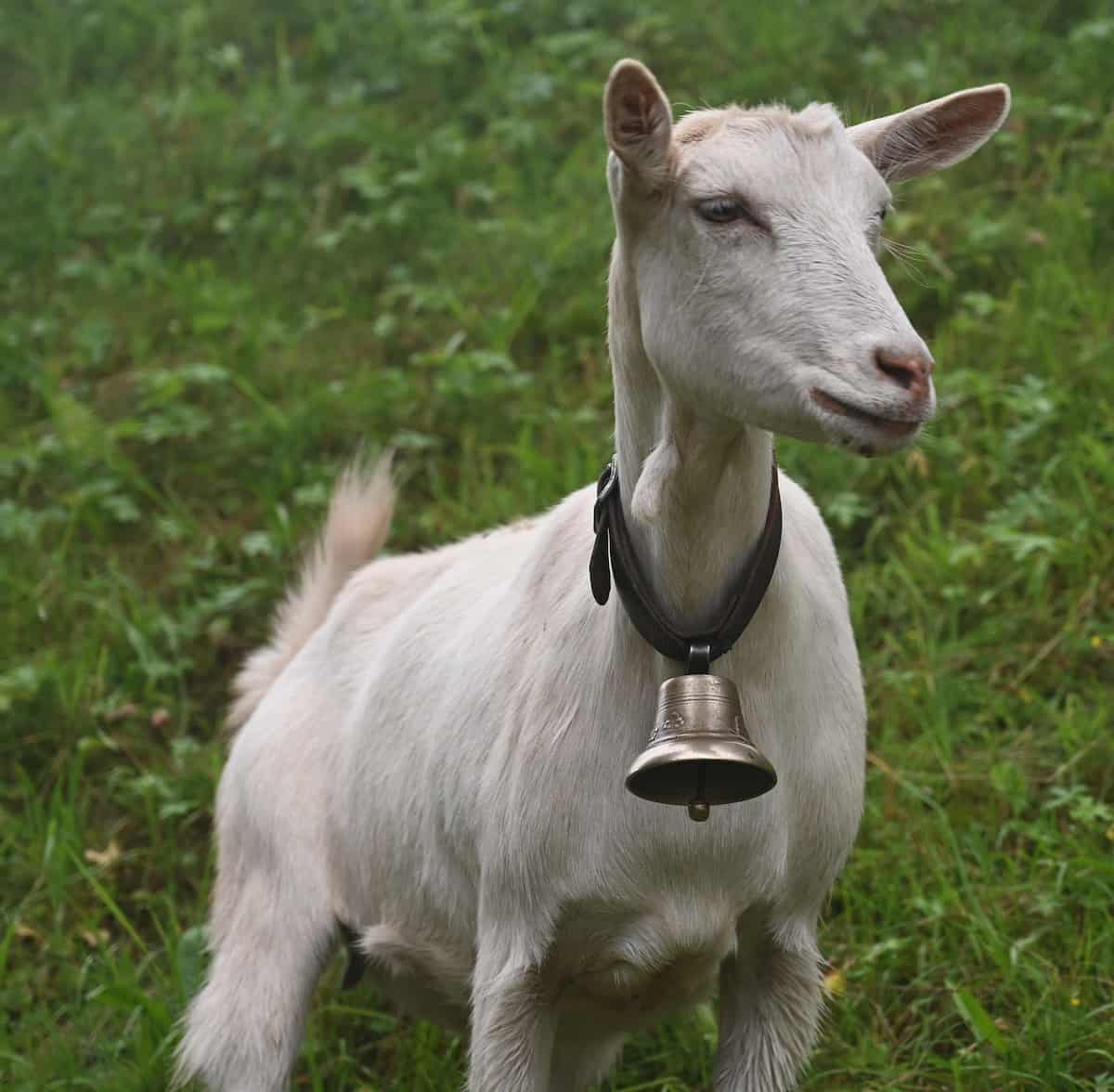
Goat breeds available in Switzerland
There are many different types of goats found in Switzerland. The most common include the Alpine, Saanen, Toggenburg, and Oberhasli breeds. Other less common breeds include the French Alpine, British Alpine, Cashmere, Pygmy, Nigerian Dwarf, and Boer goats.
Alpine
The Alpine is a medium to large-sized breed popular for its milk and meat production. They are well adapted to cold climate conditions, and their thick coat helps protect them from the elements.
Saanen
The Saanen is one of the largest goat breeds known for its high milk production. They are also popular as show goats due to their elegant appearance.
Toggenburg
It is a smaller goat breed originating in the Swiss Alps. They are known for their striking coat pattern, including light-colored stripes on a dark brown or black background.
Oberhasli
The Oberhasli is a medium-sized breed characterized by its chocolate brown coloration with black markings on the head and legs. They are considered a dual-purpose breed and are popular for their milk and meat production.
In addition to the main goat breeds, Switzerland is also home to endangered goat breeds. These breeds include the Appenzell goat, the Bündner Strahlenziege, the Nera Verzasca, the Valais Blackneck, the Oberhasli goat, Capra Grigia, and the Peacock goat. There are also imported breeds recognized in Switzerland, such as the Anglo-Nubian, Boer goat, and the Tauernscheck.
Goat feeding management in Switzerland
- In Switzerland, goat management practices are based on the Swiss Goat Management Guidelines. These guidelines recommend that goats be fed a balanced diet of hay, pasture, and concentrates.
- Goats should have access to clean water at all times. Hay and pasture should be of good quality and free of poisonous plants. Concentrates should be fed in limited quantities and should not make up more than 15% of the goat’s diet.
- The Swiss Goat Management Guidelines also recommend that goats be regularly exercised and that their housing be clean and well-ventilated.
In case you missed it: Profitable Goat Farming in Canada: Meat Breeds, How to Start
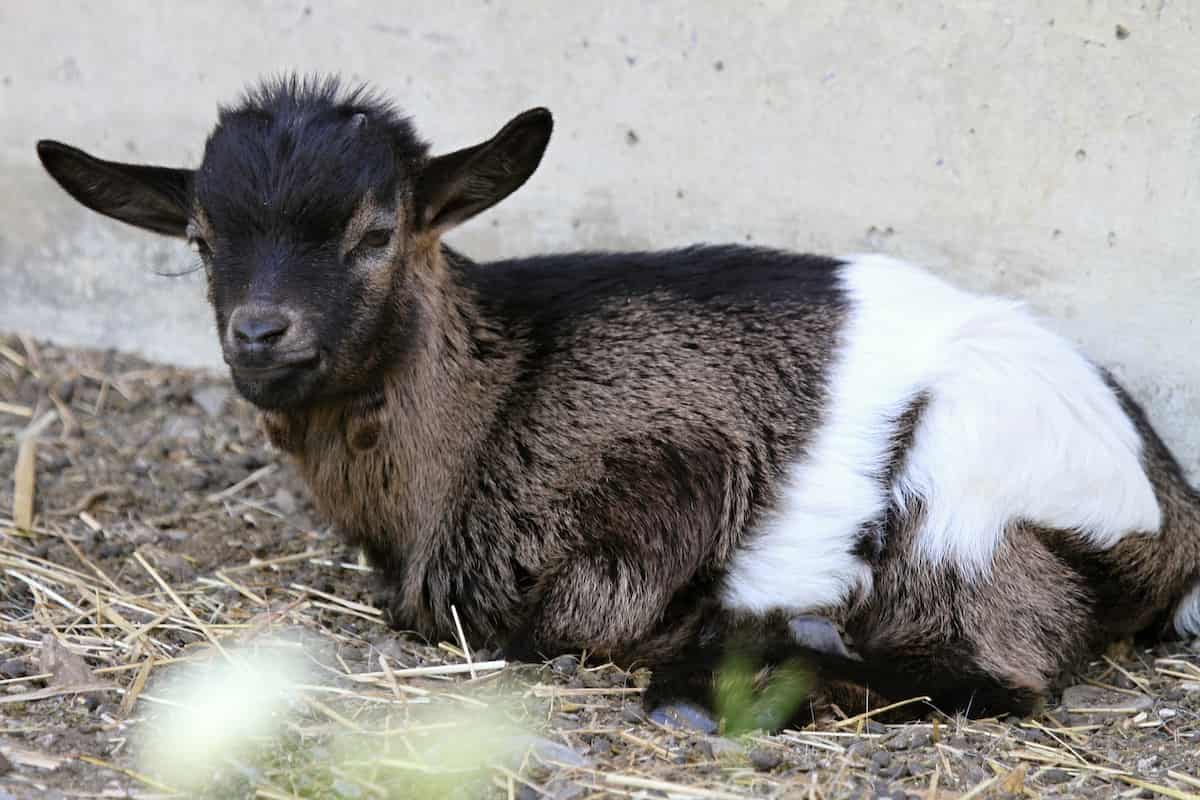
Goat house design in Switzerland
- Regarding goat houses, the design options in Switzerland are endless. Goat farmers in Switzerland have designed all sorts of creative and functional goat houses to meet the specific needs of their herds.
- Some common features of goat houses in Switzerland include spacious indoor and outdoor areas, well-ventilated spaces, and access to pasture. Goats also need a clean and comfortable place to sleep, so many Swiss goat farmers include bedding areas in their goat houses.
- The size and layout of a goat farming house will depend on the number of goats housed and the farm’s available space. However, all goat houses should provide adequate shelter from the elements and protect goats from predators.
Goat farming business plan in Switzerland
- The first step is to find a good location for your farm. You’ll need access to water and pastureland, and it should be in a relatively quiet area.
- Decide what type of goat farming business you want to start. Many options are available, including dairy goat farms, meat goat farms, and fiber goat farms. Consider your climate, land availability, and personal preference when making your decision.
- Next, you’ll need to purchase goats. Choose a breed that is well-suited to the Swiss climate and terrain. You’ll need to decide which breeds best suit your climate and farming goals. Do some research and talk to other farmers before making your final decision.
- Once you have your goats, you’ll need to set up proper housing for them. This includes shelters and space for them to roam and graze.
- Get the necessary permits and licenses required to operate a goat farm in Switzerland. Contact your local canton office for more information.
- Buy or lease some land where you can set up your farm. Goat farms require a lot of space for the animals to roam and graze, so you have enough land available.
- Build appropriate housing for your goats on the property. This will include pens, shelters, and other structures where the goats can sleep, eat, and be protected from the elements.
- Raise your goats according to best practices to produce high-quality milk, meat, or fiber products. This includes providing them with a nutritious diet, plenty of exercises, and regular vet care
- Finally, you’ll need to create a marketing plan for your goat products. There is a growing demand for goat milk and cheese in Switzerland, so be sure to target these markets.
In case you missed it: How to Start Goat Farming from Scratch: A Complete Guide for Beginners
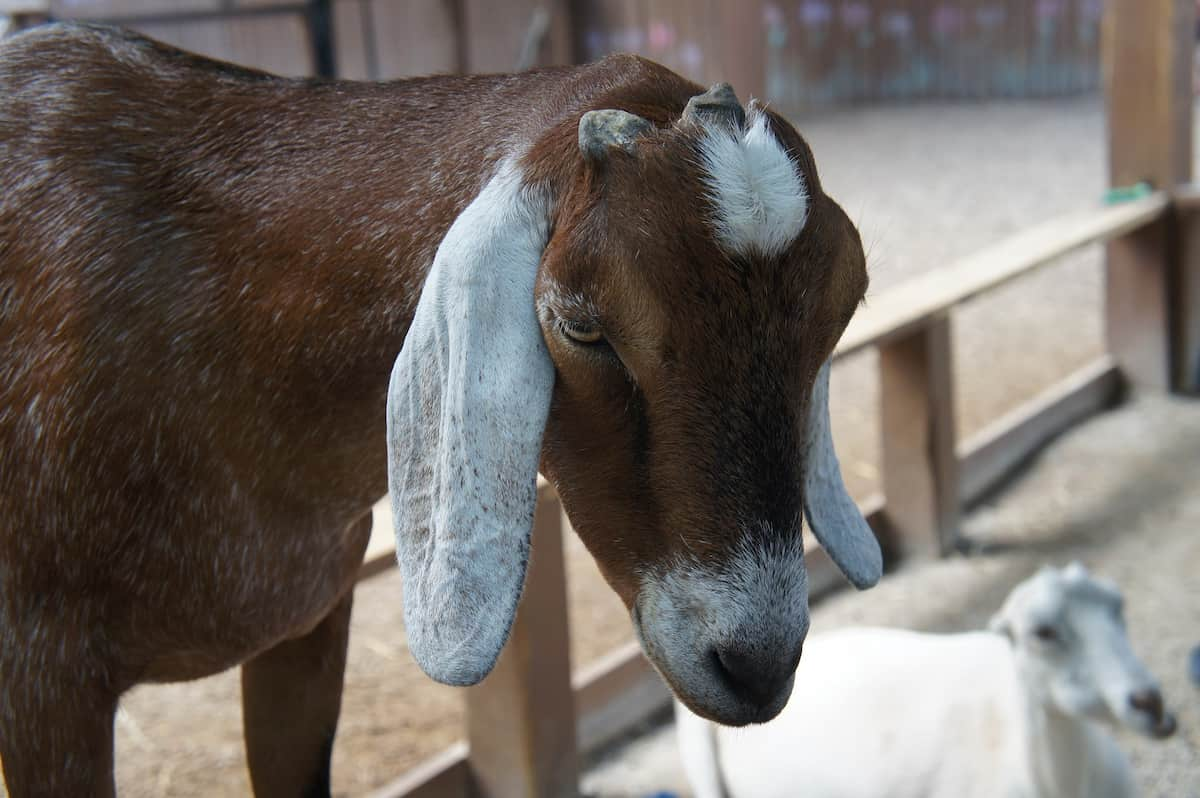
Commercial goat farming in Switzerland
- Commercial goat farming in Switzerland is a relatively new industry, with the first farms appearing in the early 2000s. Since then, the industry has grown steadily, with more and more farmers switching to goats.
- Goat rearing is a popular business in Switzerland. The Swiss Alps provide an ideal environment for goats, with plenty of grazing opportunities and fresh air. Goat-rearing is also seen as a sustainable farming practice, as goats require less water and land than other livestock animals.
- Several goat breeds, such as the Oberhasli and Saanen, are well-suited to the Swiss climate. Oberhasli goats are a hardy breed that does well in cold and hot weather. They are also known for their milk production – making them a good choice for those interested in starting a dairy operation. Saanen goats are another popular breed in Switzerland. These goat breeds are known for their high milk production and are often used in commercial dairy operations.
- Starting a goat-rearing business in Switzerland can be a rewarding and profitable endeavor. With careful planning and execution, your farm can become a thriving business venture.
- There are several reasons why commercial goat farming is gaining popularity in Switzerland. Firstly, goats are very efficient at converting feed into milk, producing a lot of milk while still being relatively low-maintenance. Secondly, goats are adaptable animals and can thrive in different climates and terrain, making them well-suited to Swiss conditions.
- Finally, Swiss consumers are increasingly interested in buying locally produced food, and goat milk is considered a healthy and sustainable alternative to cow’s milk. As a result, there is strong demand for goat milk products such as cheese and yogurt.
- If you’re thinking about starting a commercial goat farm in Switzerland, there are a few points you need to know. First, you will need to obtain a license from the cantonal authorities. Secondly, you will need to find suitable land to build your farm. And thirdly, you will need to purchase some goats!
- Many resources are available online if you’re looking for more information on commercial goat farming in Switzerland. The Swiss Goat Association (SGD) is a good place to start – they offer advice and support to farmers interested in getting started with goats.
Small-scale goat farming in Switzerland
Some points are remembered for those interested in small-scale goat farming in Switzerland. The first is that the climate is well suited for goats, with plenty of green pastures and mountainous terrain. Secondly, land and housing prices are relatively high, so farms must be efficient and well-managed to be profitable. Lastly, the market for goat products is quite a niche, so farmers need to be creative to sell their products.
Despite these challenges, small-scale goat farming can be viable in Switzerland. Those interested in this type of farming should research the market and create a business plan before getting started. With careful planning and execution, small-scale goat farmers can succeed in Switzerland.
In case you missed it: Goat Farming in New Zealand: Breeds, How to Start, Tips, and Ideas
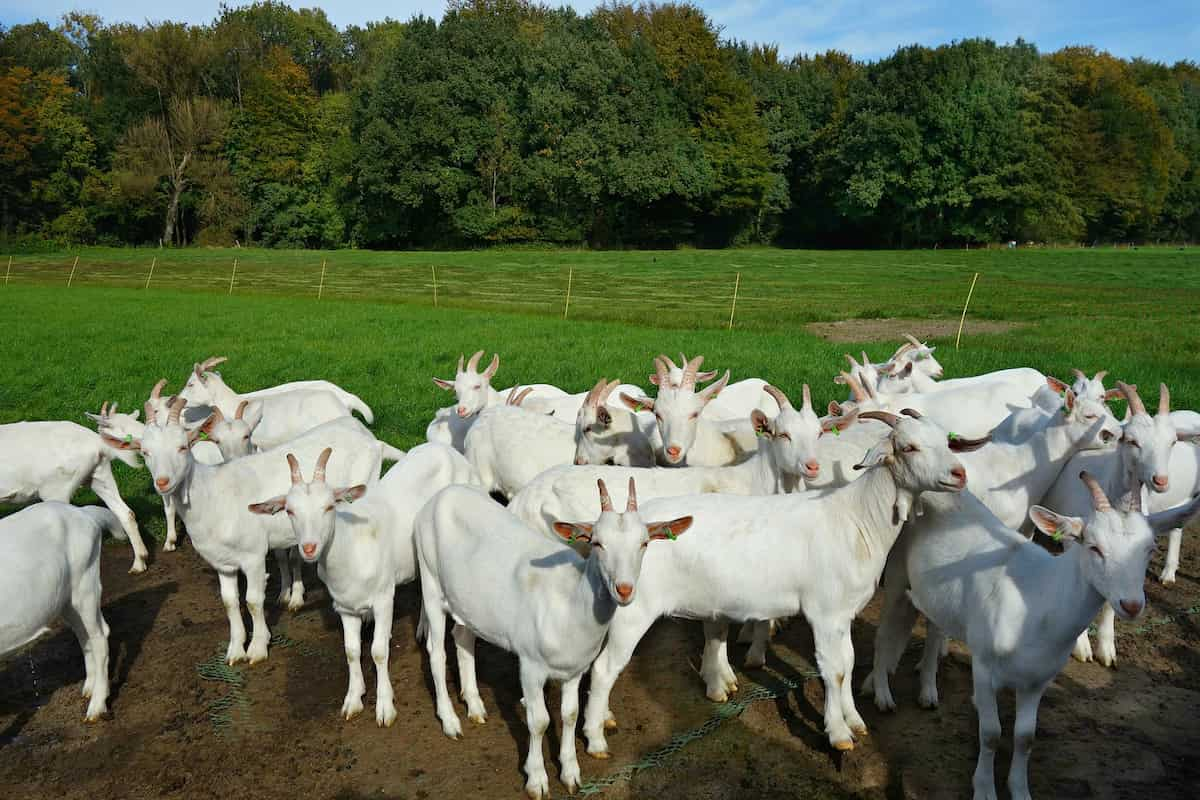
Goat farm care
- Make sure they have plenty of fresh water. Goats need about 2-3 gallons of water per day. Goats need access to fresh water at all times. A simple bucket or automatic waterer is usually sufficient for a small herd of goats. Larger herds may require a more elaborate watering system.
- Provide them with a balanced diet. Goats are browsers, not grazers, so goats need access to fresh browse (leaves, twigs, etc.) and hay and grain.
- Keep their living area clean and free of debris. This will help prevent disease and parasites.
- Get them vaccinated and dewormed regularly. Your veterinarian can help you find the vaccinations and deworming schedule best for your goats.
- Inspect the goats regularly for any signs of illness or injury. Contact your veterinarian immediately if you notice any problems.
- Goats are primarily grazers – they prefer to eat grasses and other roughage. However, they will also eat leaves, twigs, and other browsers. Providing your goats with a varied diet will help them stay healthy and productive.
With proper care and management, goat farming can be a rewarding experience if you’re interested in raising goats in Switzerland, research and talk to other farmers for advice.
Goat farm setup cost in Switzerland
The average cost of setting up a goat farm in Switzerland is around CHF 2,500. This includes buying goats, fencing, and other necessary equipment. With the right location and management, goat farming can be profitable in Switzerland.
Goat farming loans in Switzerland
- Goat farming has been a popular agricultural activity in Switzerland for centuries. In recent years, the popularity of goat farming has grown due in part to the growing demand for goat milk and meat.
- While most Swiss farmers own their goats outright, some take out loans to finance their goat farms. Several financial institutions offer loans specifically for Swiss goat farmers.
- The interest rates on these loans are typically very low, making them an attractive option for those looking to finance their goat farm. Repayment terms are also usually very flexible, making these loans an attractive option for Swiss farmers.
Goat farming problems in Switzerland
- Goat farming is an important agricultural industry in Switzerland, with goat milk products being a significant part of the country’s dairy exports. However, the sector has been facing some challenges in recent years.
- One issue is the high cost of feed, which has been rising due to competition from other livestock sectors, such as beef and poultry. This has put pressure on margins and makes it difficult for farmers to expand their operations.
- Another problem is the difficulty in finding skilled workers. The goat farming sector is reliant on migrant workers from Eastern Europe, but these workers are increasingly finding better opportunities elsewhere. This has led to a labor shortage and increased costs for farms struggling to find staff.
- Finally, there have been some concerns about the environmental impact of goat farming. Goat farms can generate a lot of manure, which can pollute waterways if not appropriately managed. There have also been cases of goats escaping from farms and causing damage to crops and property.
- The Swiss government is aware of these issues and is working with farmers to find solutions. For example, they provide financial support to help farmers upgrade their facilities and improve management practices. They are also investigating ways to make it easier for farms to recruit skilled workers from abroad.
In case you missed it: Profitable Goat Farming in Canada: Meat Breeds, How to Start
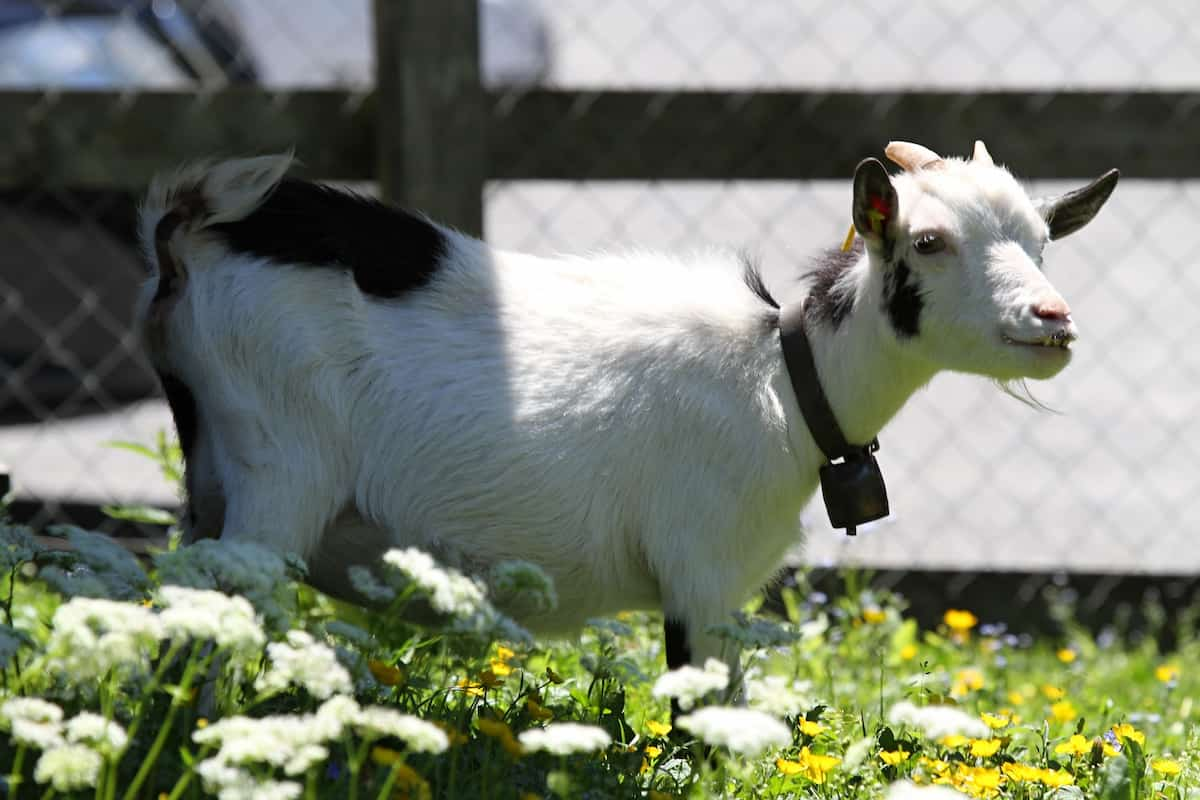
Goat marketing in Switzerland
- Goat farming is a developing industry in Switzerland. There has been an increase in goat farm and goat milk production in recent years. This has led to a need for more sophisticated marketing of goats and goat products.
- The Swiss Goat Association (SGA) was founded in 2013 to promote the interests of the Swiss goat industry. The SGA works to improve the image of goat farming and to increase the consumption of goat milk and other goat products.
- To increase demand for goats and goat products, the SGA has developed a marketing strategy focusing on three key groups: health-conscious consumers, environmentally conscious consumers, and those interested in buying local produce.
- The SGA has also worked to develop new markets for goats and their products, such as the production of cheese and yogurt. In addition, the SGA provides information and advice to farmers on how to improve their production practices.
Conclusion
Goats are well-suited to the Swiss climate and landscape. They are hardy animals that can cope with cold weather and rugged terrain. Goats are also easy to care for, making them a good choice for small-scale farmers. Swiss goat farmers use modern animal husbandry methods to produce high-quality milk and meat. They also work to protect the environment by using sustainable grazing practices.
- Economical Aquaculture: A Guide to Low-Budget Fish Farming
- 15 Common Planting Errors That Can Doom Your Fruit Trees
- How to Make Houseplants Bushy: Effective Tips and Ideas
- Innovative Strategies for Boosting Coconut Pollination and Yield
- Pollination Strategies for Maximum Pumpkin Yield
- The Complete Guide to Chicken Fattening: Strategies for Maximum Growth
- Natural Solutions for Tulip Problems: 100% Effective Remedies for Leaf and Bulb-Related Issues
- Revolutionizing Citrus Preservation: Towards a Healthier, Greener Future
- Natural Solutions for Peony Leaf and Flower Problems: 100% Effective Remedies
- Maximizing Profits with Avocado Contract Farming in India: A Comprehensive Guide
- Natural Solutions for Hydrangea Problems: 100% Effective Remedies for Leaf and Flowers
- The Ultimate Guide to Choosing the Perfect Foliage Friend: Bringing Life Indoors
- From Sunlight to Sustainability: 15 Ways to Use Solar Technology in Agriculture
- The Ultimate Guide to Dong Tao Chicken: Exploring from History to Raising
- The Eco-Friendly Makeover: How to Convert Your Unused Swimming Pool into a Fish Pond
- Mastering the Art of Delaware Chicken Farming: Essentials for Healthy Backyard Flocks
- 20 Best Homemade Fertilizers for Money Plant: DIY Recipes and Application Methods
- How to Craft a Comprehensive Free-Range Chicken Farming Business Plan
- Brighten Your Flock: Raising Easter Egger Chickens for Beauty and Bounty
- How to Optimize Your Poultry Egg Farm Business Plan with These Strategies
- Subsidy for Spirulina Cultivation: How Indian Government Schemes Encouraging Spirulina Farmers
- Ultimate Guide to Raising Dominique Chickens: Breeding, Feeding, Egg-Production, and Care
- Mastering the Art of Raising Jersey Giant Chickens: Care, Feeding, and More
- Ultimate Guide to Raising Legbar Chickens: Breeding, Farming Practices, Diet, Egg-Production
- How to Raise Welsummer Chickens: A Comprehensive Guide for Beginners
- How to Protect Indoor Plants in Winter: A Comprehensive Guide
- Ultimate Guide to Grow Bag Gardening: Tips, Tricks, and Planting Ideas for Urban Gardeners
- Guide to Lotus Cultivation: How to Propagate, Plant, Grow, Care, Cost, and Profit
- Agriculture Drone Subsidy Scheme: Government Kisan Subsidy, License, and How to Apply Online
- Ultimate Guide to Raising Araucana Chickens: Breed Profile, Farming Economics, Diet, and Care
- Bringing Hydroponics to Classroom: Importance, Benefits of Learning for School Students
- Ultimate Guide to Raising Polish Chickens: Breed Profile, Farming Economics, Diet, and Care
- Ultimate Guide to Raising Australorp Chickens: Profile, Farming Economics, Egg Production, Diet, and Care
- Silkie Chicken Farming: Raising Practices, Varieties, Egg Production, Diet, and Care
- Sussex Chicken Farming: Raising Practices, Varieties, Egg Production, Diet and Care
- Homemade Feed Formulations for Livestock: Discover Cost-effective Starter to Finisher Feed Recipes